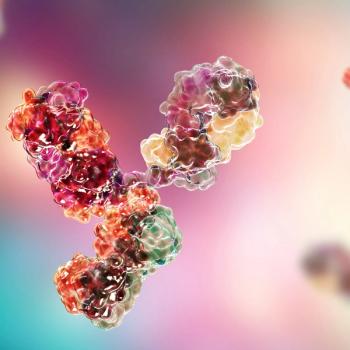
It’s hard to be in medicine at the moment, and one day’s recognition is not enough. As your peer, I honor my fellow physicians today and every day.

It’s hard to be in medicine at the moment, and one day’s recognition is not enough. As your peer, I honor my fellow physicians today and every day.

In a paradigm with many options, once multiple sclerosis is confirmed as a patient’s diagnosis, physicians are left with 1 question: What do we choose for long-term treatment?

Transgender and gender-diverse patients have unique neurological considerations, but often, neurologists are unaware of the needs that are specific to this community.

Four neurologists treating patients with epilepsy share their experience in and out of the clinic tackling issues of access for their patients.

This complex waste clearance pathway within the CNS plays a crucial role in maintaining brain homeostasis, as a mechanism of protein waste removal alongside autophagy and protein aggregate ubiquitination.

Bijoy E. John, MD, founder and medical director of Sleep Wellness Clinics of America (Nashville) and Sleep Fix Academy, discussed the health risks associated with daylight saving time changes.

Rare Disease Day raises awareness for rare disorders, highlighting challenges, improving detection, and fostering collaboration for treatment advancements.

Caroline Just, MD, reflects on the challenges of diagnosing and treating rare neurological diseases, urging for improved education, collaboration, and research efforts.

Alexander Scheer, MD, medical director at Scheer Medical Wellness, provided his medical perspective on insomnia in the clinical practice of sleep medicine.

A systematic approach to understanding the needs of the caregiving youth—a growing and less-studied population of caregivers—is needed to better tailor interventions, provide support, and improve care to patients and their families.

Despite the diagnosis of MS improving, misdiagnosis remains a challenge, pointing to the need for proper differential diagnosis and mimic identification.

With the first approved biosimilar entering the US treatment market, the time for clinicians to understand the coming era of therapies is now.

The effect of gaslighting on patients can result in serious harms, and although it is potentially common in the MS care continuum, whether it is deliberate or an institutional problem, it must be called out by providers.

We are closer than ever to individualized management of MS, and keeping up with the rapidly changing pace of MS care is challenging even for an MS specialist.

AI could revolutionize patient advocacy by bridging communication gaps between patients and providers, and the synergy of medicine and AI offers a promising avenue for enhanced patient care and operational efficiency.

L. John Greenfield Jr, MD, PhD, “spoke” about the future of artificial intelligence in neurology with ChatGPT-4—one of the largest language modules that have grabbed the field’s interest.

There should be a holistic approach to how the systems in place affect equity: how medicine is practiced and research is conducted, the structure of academic institutions, and how media influence our perceptions of neurologic conditions.

Recent research has suggested a role for thyroid hormones and their receptor, thyrotropin, in muscle regeneration and development, making a case for further investigation in DMD.

Social determinants of health are conditions that people are born into and live under that affect their health, and can greatly impact clinical outcomes as well as contribute to health disparities and inequalities.

Although challenging, shared decision-making is a rewarding part of the practice of medicine. Involving patients in therapeutic decisions can improve patient autonomy and satisfaction—but it is not easy to implement.

Falls cost the US more than $50 billion annually, but platforms like CatchU, a transformative digital health tool, provide quantitative fall assessment that might significantly enhance the current standard of care for predicting falls.

Cervical dystonia, the most common form of focal dystonia, has shown to be able to be effectively managed with a variety of botulinum toxin formulations.

Despite a promising increase in the number of patients who receive preventive medications for migraine, a wide gap remains to effectively meet patient needs and reduce the burden of migraine.

Recent advancements have the potential to significantly improve the lives of individuals with myasthenia gravis and contribute to the broader understanding of autoimmune diseases

The fallout from the pandemic has shaped a growing public health concern and a call for a new clinical pathway to account for the intersection between culture, ethnicity, race, and aging.

Recent advances in artificial intelligence—particularly conversational AI tools such as ChatGPT—suggest promising potential in addressing the issues of loneliness and social isolation in these patient populations.

Despite a tremendous burden regarding migraine-related disability and expenditure, headache disorders remain underdiagnosed and undertreated, and only a small percentage of patients report satisfaction with the treatment received.

Despite years of use of gold-standard therapy levodopa, therapeutic development in Parkinson disease has advanced rapidly and expanded to numerous novel pathways and targets.

As therapeutic development has advanced in Parkinson disease management, the introduction of on-demand options have extended ON time for patients and altered the paradigm of care.

Psychosis is estimated to affect more than half of patients with Parkinson disease, and there is a growing need for improved management and therapeutic development.